Our Favorite Photos of 2023
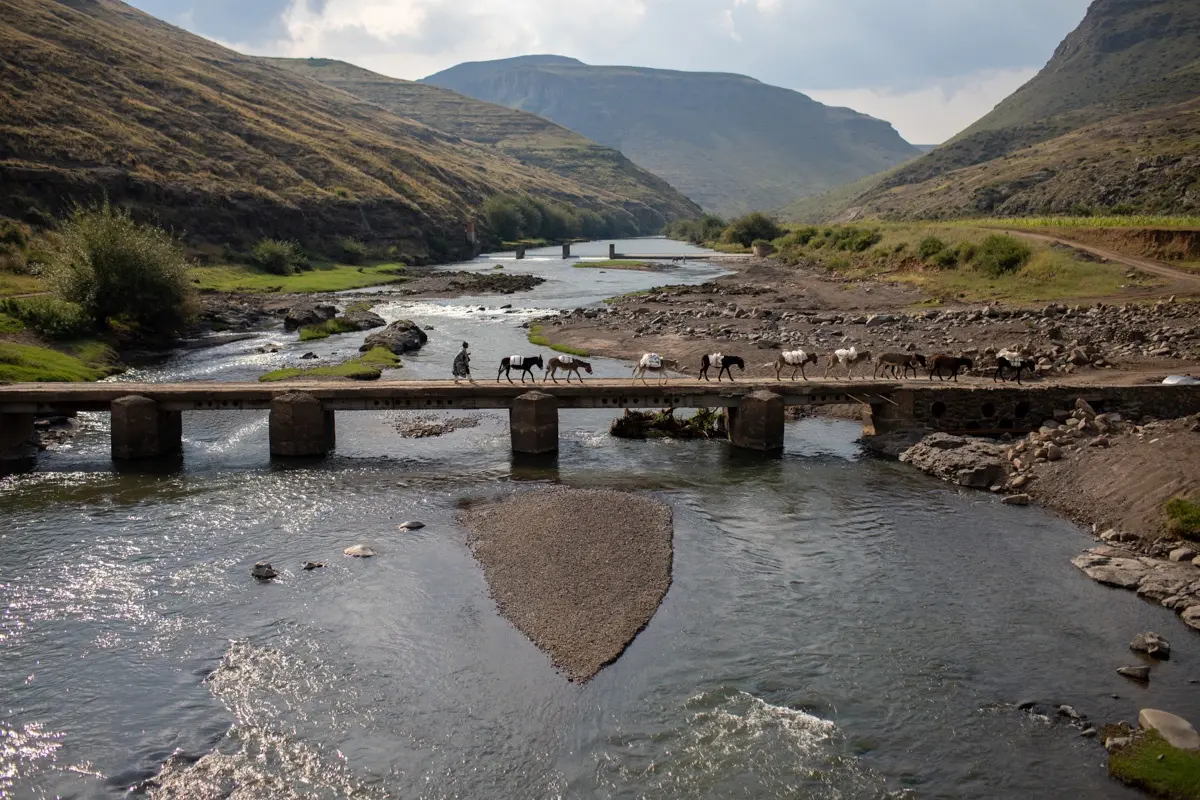
From hospital expansions and cholera treatment to lifesaving medical oxygen and global advocacy, images tell PIH’s story
Posted on Dec 23, 2023
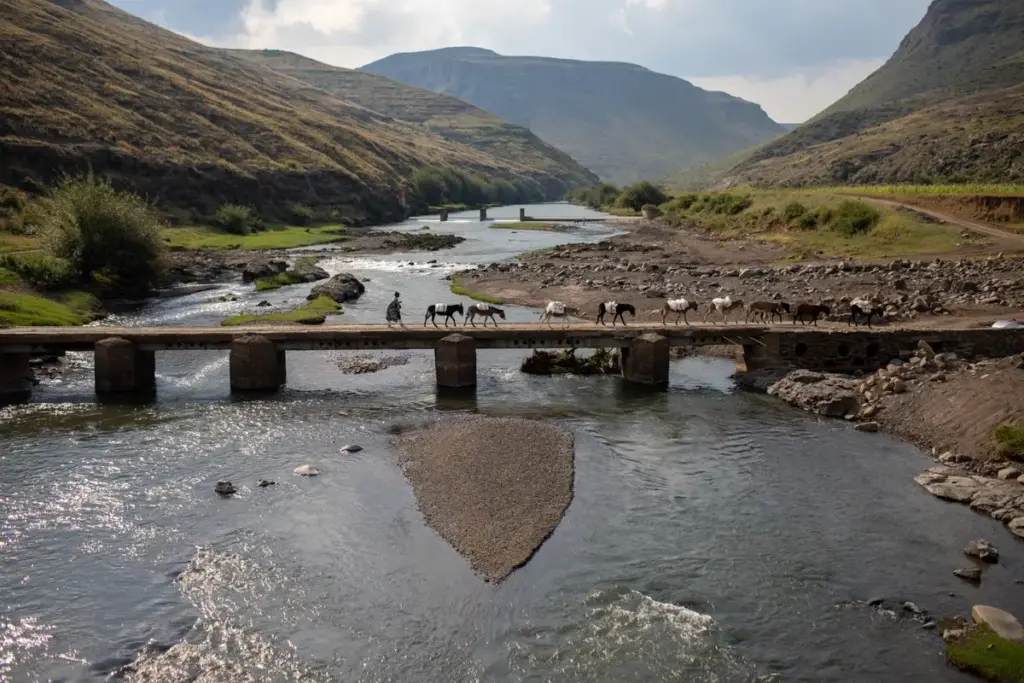
Partners In Health staff and partners expanded a state-of-the-art hospital in Rwanda. Clinicians cured patients living with tuberculosis. Technicians helped deliver lifesaving oxygen to more patients across the globe.
The year 2023 saw its share of challenges—from a record-breaking cyclone that devastated communities in Malawi, to increasing gang violence in Haiti. But it also saw moments of triumph.
In this collection of images, chosen from more than 12,000 taken over the course of the year, PIH photographers and contributors stood beside our dedicated staff as they broadened the scope of medical services and deepened engagement with communities. Through these brief snapshots in time, we celebrate the triumphs and bear witness to the challenges of the past year.
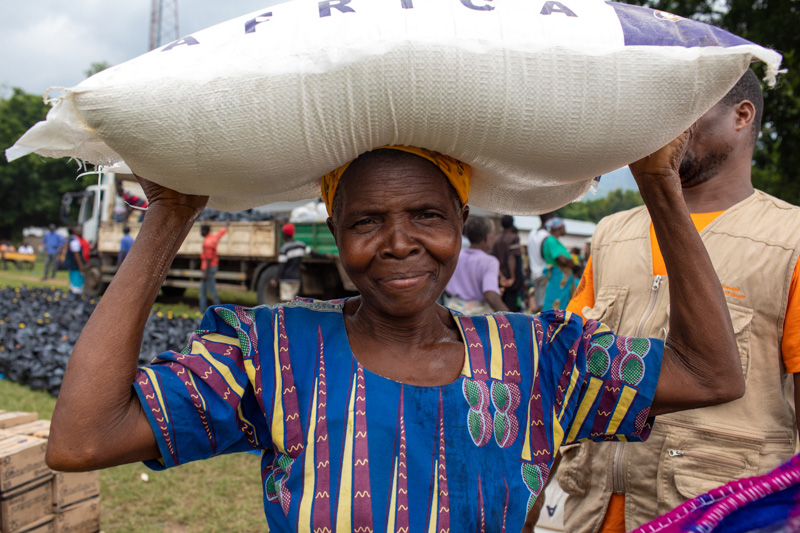
Settea Benard receives a blanket and food package on April 1. Abwenzi Pa Za Umoyo, as Partners In Health is known in Malawi, visited the Mitondo camp in Chikwawa District in response to Cyclone Freddy. The team offered clinical services as well as food packages for residents of the camp, all who were displaced by the cyclone. Each food package consisted of a bag of maize flour, beans, soya pieces, cooking oil, salt, and sugar and will last the average family 2.5 weeks.
Photo by Caitlin Kleiboer / PIH
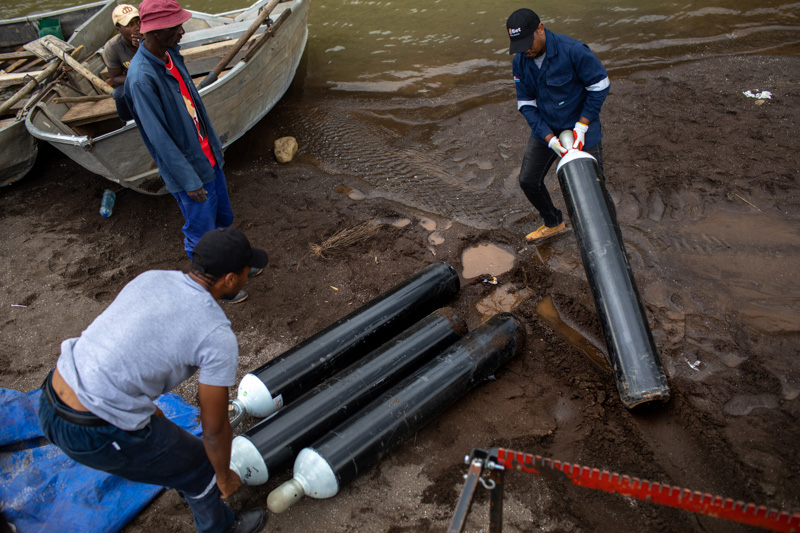
Oxygen cylinders are transferred off an oxygen truck and into boats to be delivered to Tebellong Hospital in Qacha’s Nek, Lesotho.
Photo by Zack DeClerck / PIH
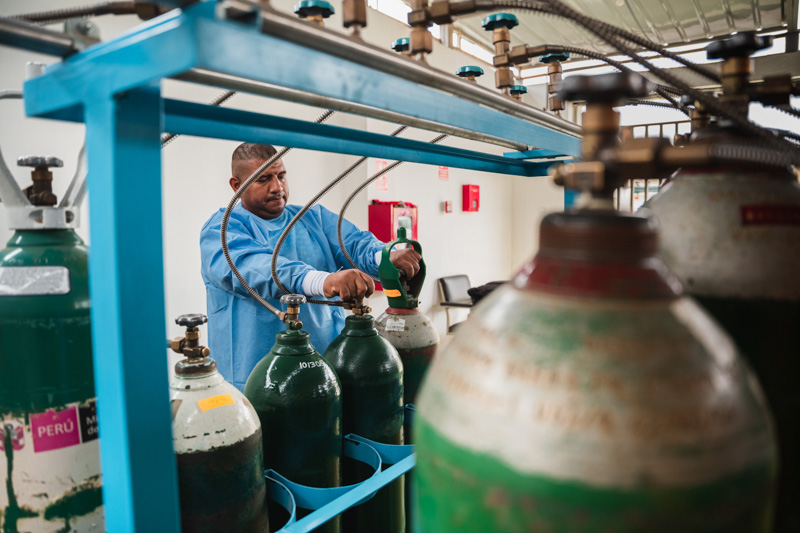
Juan Hurtado, medical staff at the San José de Chincha Hospital, does routine maintenance and inspection work on the medical oxygen systems of the oxygen plant.
Photo by William Castro Rodriguez for PIH
A reflection from William Castro Rodriguez, one of several freelancers working with Socios En Salud (SES), as PIH is known in Peru:
“Working together with the SES team means a genuine and human commitment. Being a creative producer has allowed us to accompany them and be close to their great work in communities. Seeing the joy of people whose health has been positively impacted has special meaning for us.”
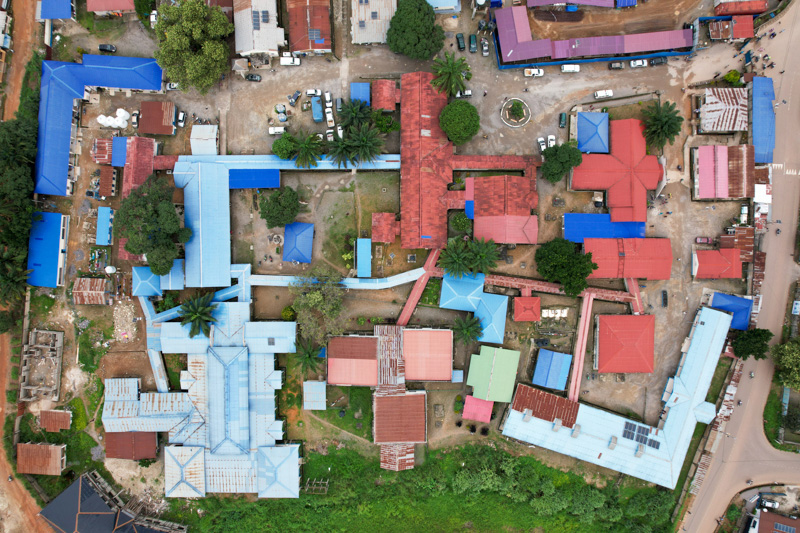
An aerial view of the campus of Partners In Health-supported Koidu Government Hospital in Kono District, Sierra Leone. Photo by Abubakarr Tappiah Sesay / PIH
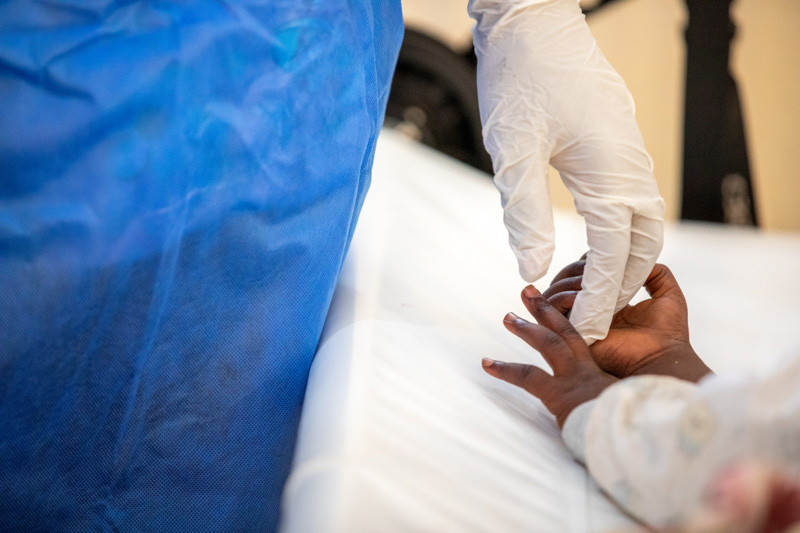
Prince is accompanied by his father, John, as the 4-year-old receives care at the cholera treatment unit at Lisungwi Hospital in Lower Neno, Malawi. Photo by Zack DeClerck / PIH
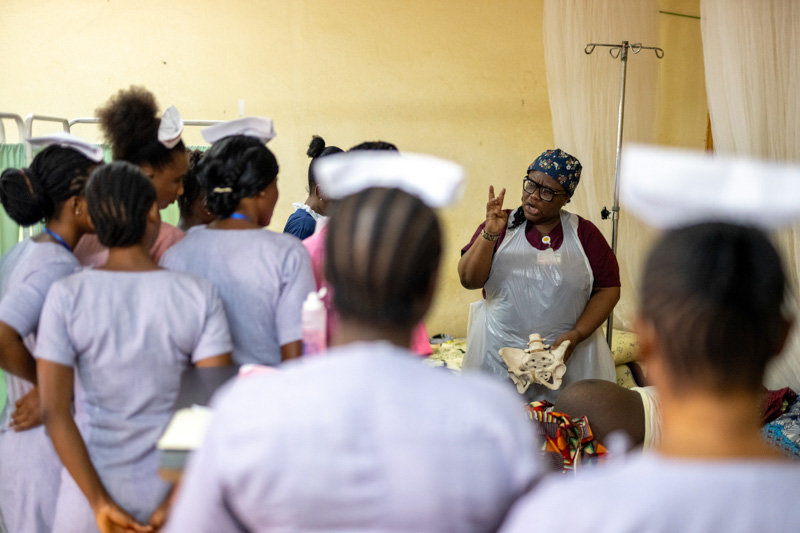
Patricia Efe Azikiwe, the reproductive, maternal, newborn, child, and adolescent health clinical program manager at Koidu Government Hospital in Sierra Leone, mentors student nurses and midwives. Photo by Caitlin Kleiboer / PIH
A reflection from Caitlin Kleiboer, associate director of multimedia:
“Reflecting on my time with our care delivery site staff this year, the short day spent with Sister Patricia Efe Azikiwe at Koidu Government Hospital in Sierra Leone stands out in my memory. As I followed her through the hospital, I was struck by the profound impact of her passion and dedication. She is one of the hardest working people I have ever met.
In this moment, I was in a room packed with over a dozen student nurses and student midwives, all clamoring for a spot to see her work, practicing the maneuver she was teaching in the air along with her. To be honest, she is the kind of teacher that in my student days I would have called ‘tough.’ But her rules are basic and fair, and she doesn’t mince words. Don’t be late. Don’t have your phone out. Pay attention. Learn the skills. She is also the kind of teacher that I would have looked back on as one of the most impactful of my life. From that day with her, I feel very sure that something someone learned will save a life of a woman or baby. That toughness, those rules, that dedication is truly lifesaving, and I feel lucky to have been able to witness it.”
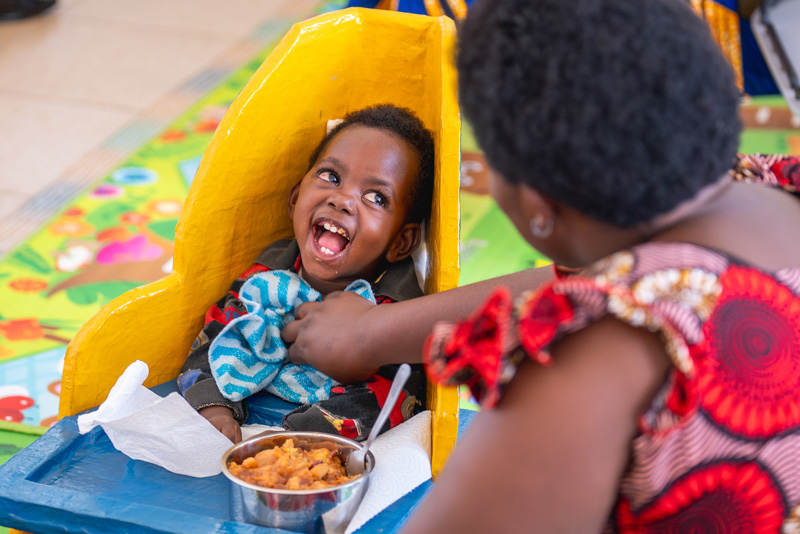
Inshuti Mu Buzima, as PIH is known in Rwanda, saw a need for children with disabilities to have access to adaptive chairs for their occupational therapy in Kirehe. Because these chairs can be prohibitively expensive, our Pediatric Development Clinic staff found ways to make three types of assistive devices—corner seats, specially designed chairs, and standing frames—out of affordable materials like cardboard and recycled paper. Photo by Asher Habinshuti / PIH
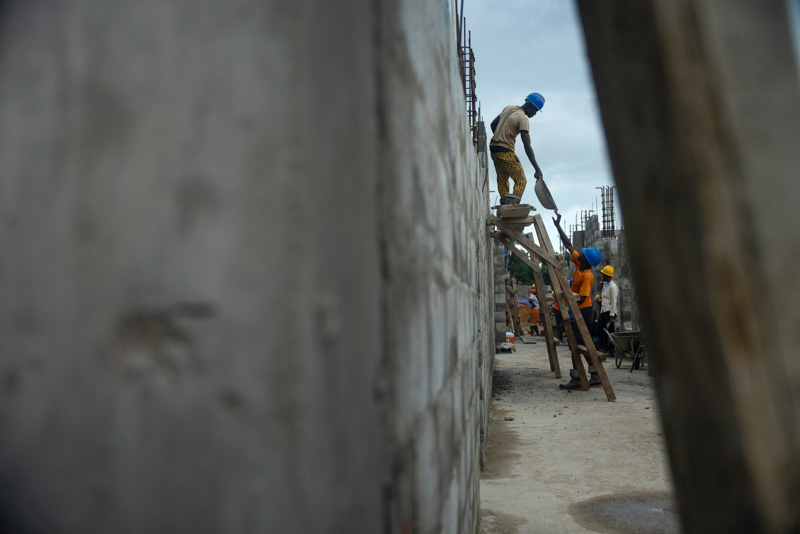
Construction workers build cinder block walls at the Maternal Center of Excellence in Kono, Sierra Leone. When completed, the center will provide advanced maternal and child health services in Kono District and beyond. Photo by Caitlin Kleiboer / PIH
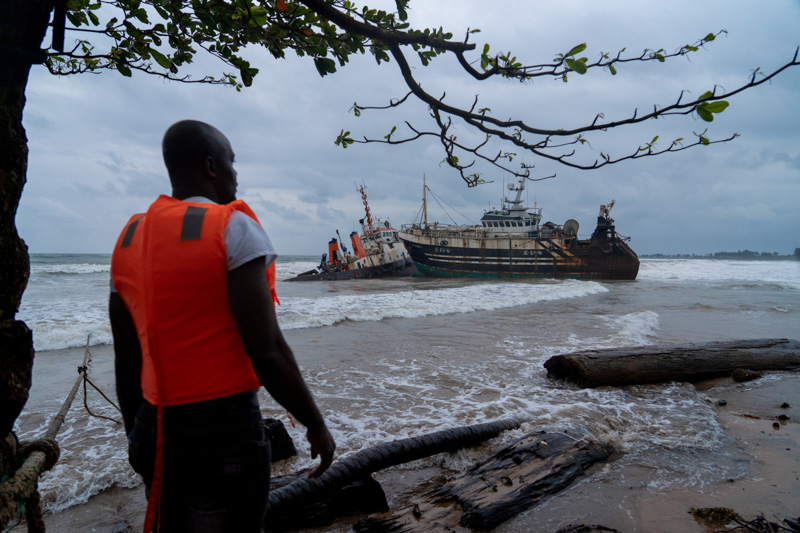
Wellington Dennis, a communications intern with PIH Liberia, stops on the beach as the tide rises while on the way to Putuken, a small community where PIH provides mobile care and support. It is separated from Harper, home to J.J. Dossen Hospital, by a small river and is only accessible by boat. Photo by Caitlin Kleiboer / PIH
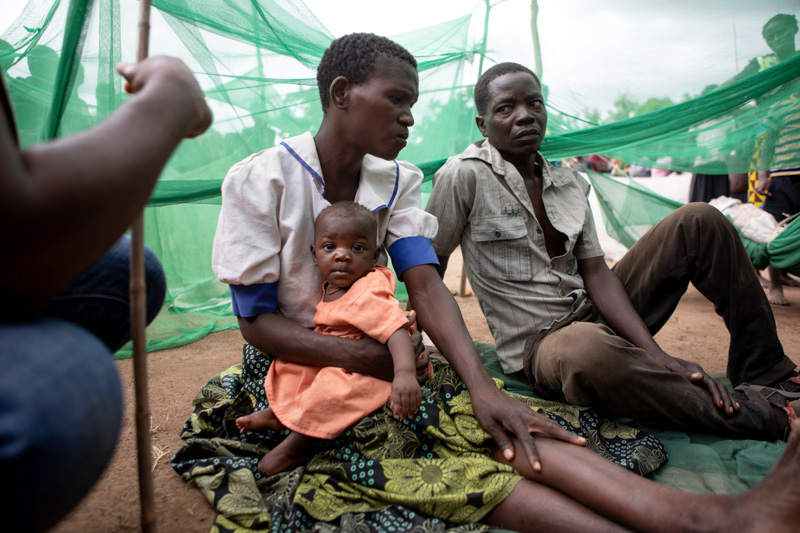
Ruth Lazo (center), who received clinical services from PIH, sleeps outside at the Somo Camp with Piriran Seza (right) and their 4-month-old daughter after being displaced from their home by Cyclone Freddy. Somo does not have tents and bug nets are removed during heavier rains to preserve their effectiveness. Photo by Zack DeClerck / PIH
Reflection from Zack DeClerck, global multimedia manager:
“Despite our primary focus not being disaster response, PIH swiftly stepped in when Cyclone Freddy ravaged southern Malawi. Over half a million people were displaced, and countless crops were destroyed. Though the worst-hit areas were outside Neno, PIH extended its support to places like Somo Camp in Chikwawa District, where residents share heartbreaking stories about fleeing their homes with their children in the dead of night.
When we met Ruth, Piriran, and their 4-month-old daughter Alufa, they were absolutely exhausted. We all fought tears as they detailed the impossible choices they faced navigating life after being displaced. Two weeks post-cyclone, the camp lacked tents, faced food shortages, and there were no insights on when adequate shelter might become available. PIH responded where other agencies fell short, deploying additional staff for medical care, mental health support, and food packages.
The lack of international media coverage infuriated me; in many parts of southern Malawi, PIH stood alone in the support it provided. This crisis underscored the profound impact of climate change on impoverished communities, intimately connected to our mission of delivering quality healthcare.
With limited resources, our colleagues in Malawi gave me so much hope through the grace in which they delivered care. PIH’s response to Cyclone Freddy embodied solidarity, accompaniment, and a refusal to accept injustice. The Malawian government specifically came to PIH for assistance with their response and that’s a testament to the power of partnership and the long-term commitment of our mission.”
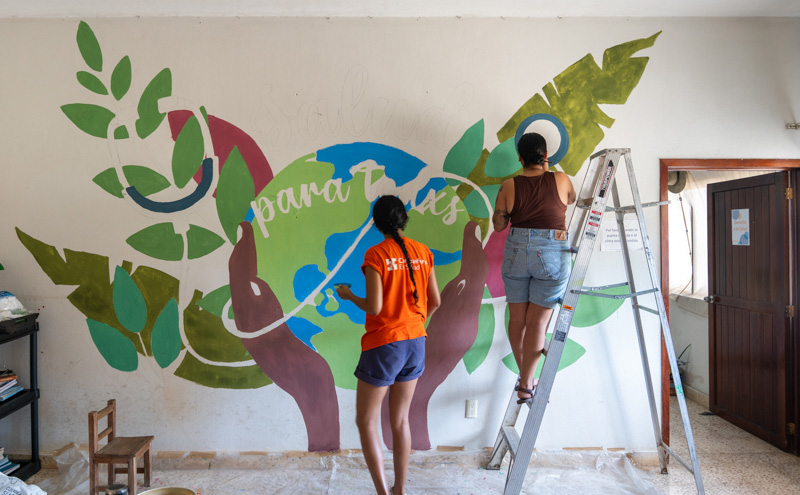
Communications staff with Companeros En Salud, as PIH is known in Mexico, Marina Luria (left) and Diana Bernal (right) paint a mural on the wall in JaltenangoJaltenango. The mural, which translates to “Health for all,” was completed as part of the Global Day of Action in October to honor what would have been Co-founder Dr. Paul Farmer’s 64th birthday. Photo by Francisco Terán / PIH
Reflection from Francisco Terán, media designer:
“For me, photography is a powerful tool to share stories, convey emotions, immortalize moments, and invite reflection. Here I captured a moment as the Comms team works on a colorful mural to celebrate Global Day of Action.
From Jaltenango, Chiapas, it has been an honor to be part of Paul Farmer’s legacy on this special day, feeling like a very precious, emotional, and important moment to continue sharing his vision and mission, as well as the impact he has had on thousands of people. It is very valuable to be part of something so great, of a legacy and a work that will continue to grow year after year and that will continue to be shared with generations to come.”
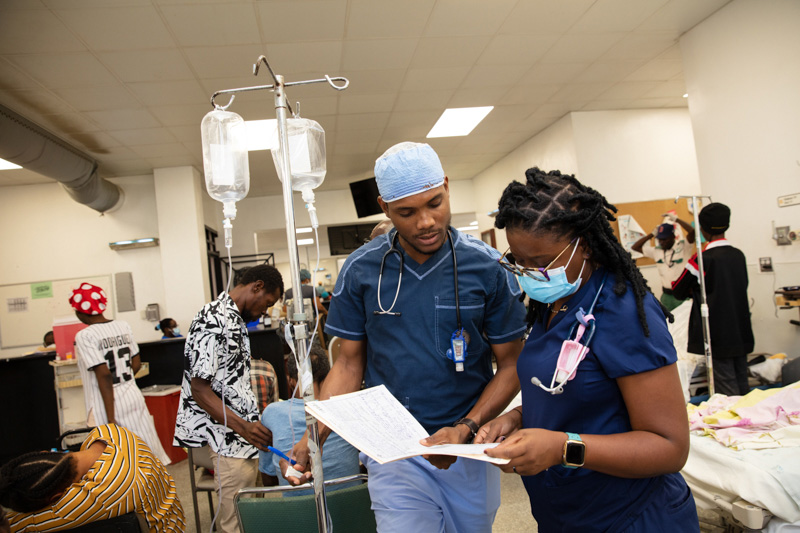
Clinicians with Zanmi Lasante, as PIH is known in Haiti, review a patient’s chart at Hopital Universitaire de Mirebalais on March 24. Photo by Nadia Todres for PIH
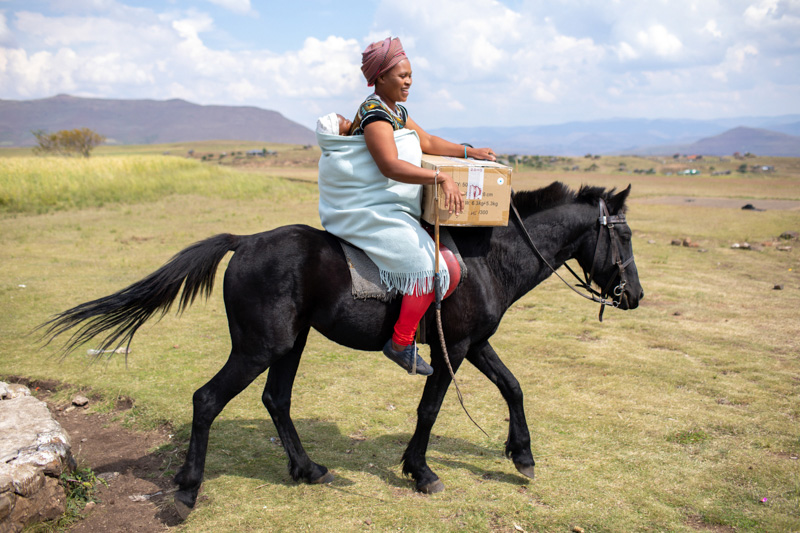
Makatleho Monyake and her 4-month-old baby prepare to ride home on horseback with a food package following an appointment at Bobete Health Center in Lesotho. Photo by Zack DeClerck / PIH

Ekram Hussien Ahmed, a graduate from the Gender, Sexual and Reproductive Health track at the University of Global Health Equity, attends her graduation ceremony in Kigali, Rwanda, in August. Photo by Serrah Galos for UGHE



